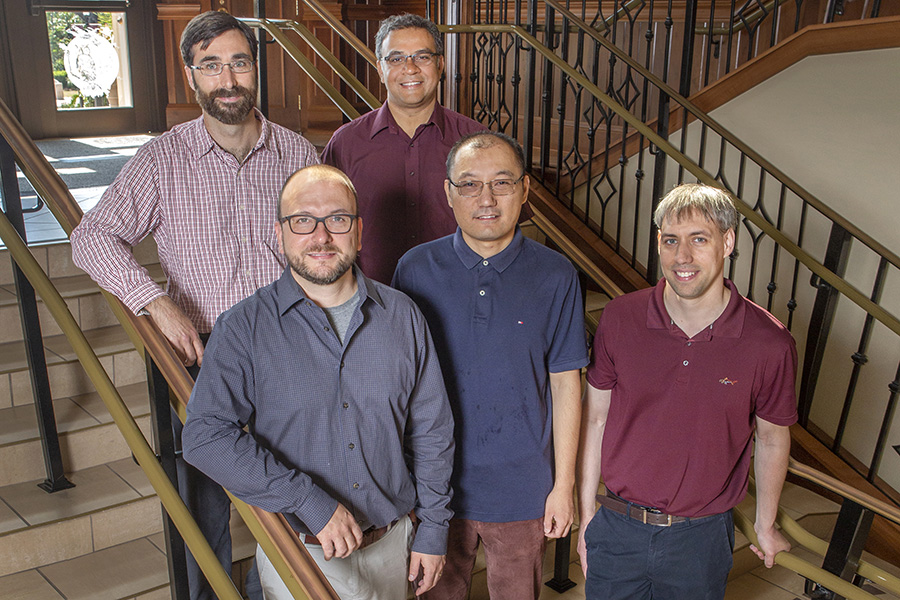
A record number of Florida State University faculty members have received the National Science Foundation’s prestigious CAREER award this year for researchers in the early stages of their careers.
Five Florida State University assistant professors have received the award that carries funding for their lab as well as the opportunity to work closely with the NSF in refining the direction of their research.
“We are very proud of these five early-career researchers and the hard work that they have put in to earn this award,” said Vice President for Research Gary K. Ostrander. “This award marks the beginning of things yet to come for these faculty members, and we are excited to see what they achieve.”
FSU’s 2018 CAREER winners are:
Daniel Hallinan, assistant professor of chemical engineering in the FAMU-FSU College of Engineering: Hallinan will investigate properties of polymer membranes for sustainable energy technologies. Hallinan and his team will use fundamentals of polymer physics and advanced experimental techniques to overcome material design limitations in membrane applications like food packaging, batteries and capacitor dielectrics. Hallinan earned his doctorate from Drexel University and joined Florida State University in 2012.
Ken Hanson, assistant professor of chemistry and biochemistry: Hanson and his students will create new types of solar cells that absorb previously unharnessed, low energy portions of sunlight. This work will push the theoretical efficiency limit of solar cells from 33 percent to 45 percent. To achieve this goal, the research team will study how molecules assemble and interact with organic-inorganic interfaces. Hanson earned his doctorate from University of Southern California and joined FSU in 2013. He is a part of the Energy and Materials Strategic Initiative, which was created by the university with a mission of producing high-tech materials for next-generation, energy sustainable technology.
Chen Huang, assistant professor of scientific computing: Huang will work to develop new theoretical and computational methods to investigate electronic properties of large complex molecules and materials that are essential to the design of materials used for clean energy, heterogeneous catalysis and new electronic
devices. Huang, who received his doctoral degree from Princeton University, joined FSU in 2014. He is a member of the Energy and Materials Strategic Initiative.
Justin Kennemur, assistant professor of Chemistry and Biochemistry: Kennemur and his team will synthesize and develop a new class of high-performance elastomers that are hypothesized to have super-elastic and super-soft properties. Through the synthesis of highly precise molecular architectures, he hopes to better understand these polymers to ultimately develop practical applications such as lubricants, knee or joint cartilage replacements and protective equipment that reduces force impact. Kennemur, who received his doctorate from North Carolina State University, came to FSU in 2014 and is part of the Energy and Materials Strategic Initiative.
Mainak Mookherjee, assistant professor of Earth, Ocean and Atmospheric Science: Mookherjee and his team will investigate how water is transported into the Earth’s interior and how much water is stored beneath the planet’s surface. In addressing these questions, Mookherjee will use experiments and theoretical methods to examine how hydrogen influences physical properties such as elasticity, diffusion and electrical conductivity of minerals at conditions relevant to the Earth’s interior. These results will be compared with geophysical observations to infer the size and extent of the stored water in the deep Earth. Mookherjee, who received his doctoral degree from the University of Cambridge, joined FSU in 2015.




